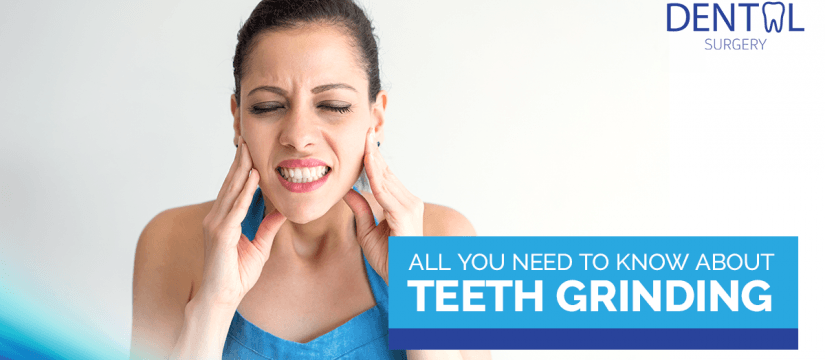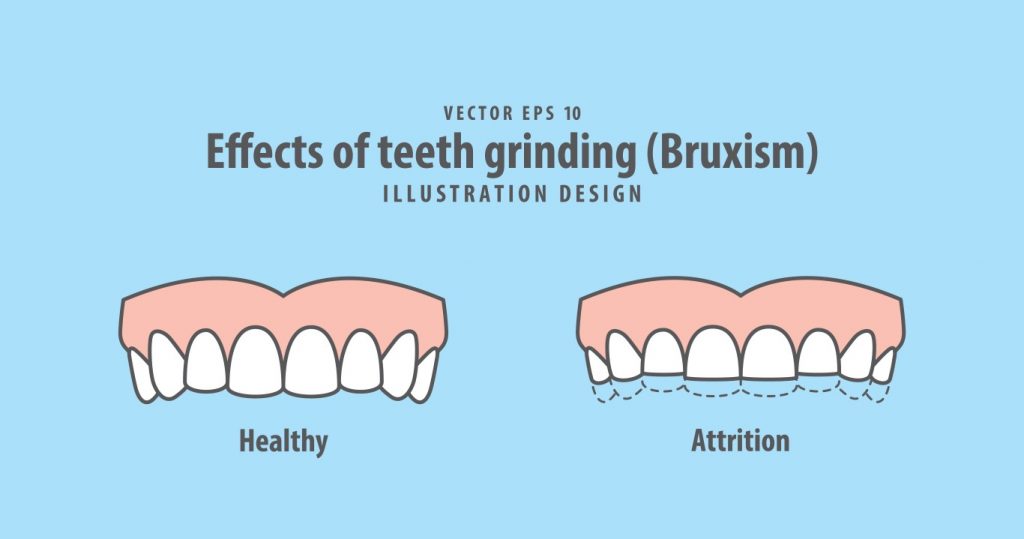
Teeth grinding is a common, yet serious condition that affects many people. Some individuals may even be unaware they suffer from it.
Perhaps you’re one of them.
Because it is involuntary and generally occurs during sleep, the symptoms are often difficult to pinpoint and attribute directly to clenching/grinding of teeth.
Fortunately, there are ways to identify if you’re one of the many that are silently affected by this condition, and to stop it in its tracks early.
What exactly is teeth grinding?
Teeth grinding, or Bruxism as it is medically known, can be described as an involuntary clenching or grinding of the teeth.
When this clenching and grinding becomes persistent, a number of serious dental issues can arise, including:
- Jaw pain, particularly in the morning
- Head, neck and shoulder aches
- Teeth sensitivity as a result of stress and worn down enamel
- Fractured, chipped or loose teeth
How do I know if I’m grinding my teeth?
As clenching and grinding often occurs during sleep, and some of the more serious issues that arise from bruxism i.e worn enamel, occurs over a long period of time; many people are unaware that they grind their teeth at all.
Some of the most common symptoms to look out for however, include:
- Waking up in the morning with sore jaws, aching teeth and stiffness in the face and temples. Eating breakfast in the morning can be particularly difficult with the soreness.
- General sensitivity to hot and cold foods
- Constant tooth aches, headaches, jaw pain and ear pain
- Over time, excessive wear on your teeth
What are the causes of teeth grinding, and how can it be prevented?
It can be difficult to identify the exact causes of teeth grinding, as there are a number of factors or links that need to be considered, and can be attributed to its symptoms.
One of the most common links however, is that teeth grinding is caused by psychological issues such as stress or anxiety.

Because teeth grinding predominantly occurs during sleep, finding the exact cause and treating it is not a simple task. There are however a number of practical ways to reduce some of the causes of stress or anxiety in the body, such as reducing alcohol consumption, tobacco intake, and cutting out any caffeine products.
Another school of thought is that teeth grinding is hereditary, and can be passed on through genetics. Although this is not a proven cause, there are factors that may place you higher at risk, such as misaligned teeth and jaws, overbite, underbite or crossbites.
The most important advice we can give you however, is to see your local dentist to examine your teeth. This will identify if there has been any wear that can be attributed to teeth grinding.
While dentists can’t treat the psychological factors that may be at play, dentists can provide preventative measures to guard your teeth. One of the most common measures we provide is mouthguards that are worn at night during sleep to prevent teeth from grinding together.
Schedule your next appointment at Kooweerup Dental today to ensure that we can identify any signs of teeth grinding early!


